As the age-old debate on the purpose and objective of education rages on, it has become quite evident that no single definition can adequately capture it. One thing that has become quite clear however is that education has a moral basis because it’s an instrument most agree is used to serve the interest of society and to advance the cause of mankind in one way or the other. And that’s why KEY Academy’s mission ‘to empower children with critical thinking, creativity, collaboration, and the confidence to solve real-world problems with purpose’ stands it out amongst its peers. Not just in words but in positive action as Africa’s first 21st-century project-based learning school. At KEY Academy, subjects are not taught in the abstract, as numeracy and literacy come alive with meaning, weaved into real-world projects and purposeful play.
KEY Academy, shortlisted for a global prize in innovation is a school which dares to be different, by nurturing individuals whose educational goal is not merely to feel clever, but to apply acquired knowledge to solve real-world challenges – whether they be local or global. One may say KEY Academy is a school that has come to serve.
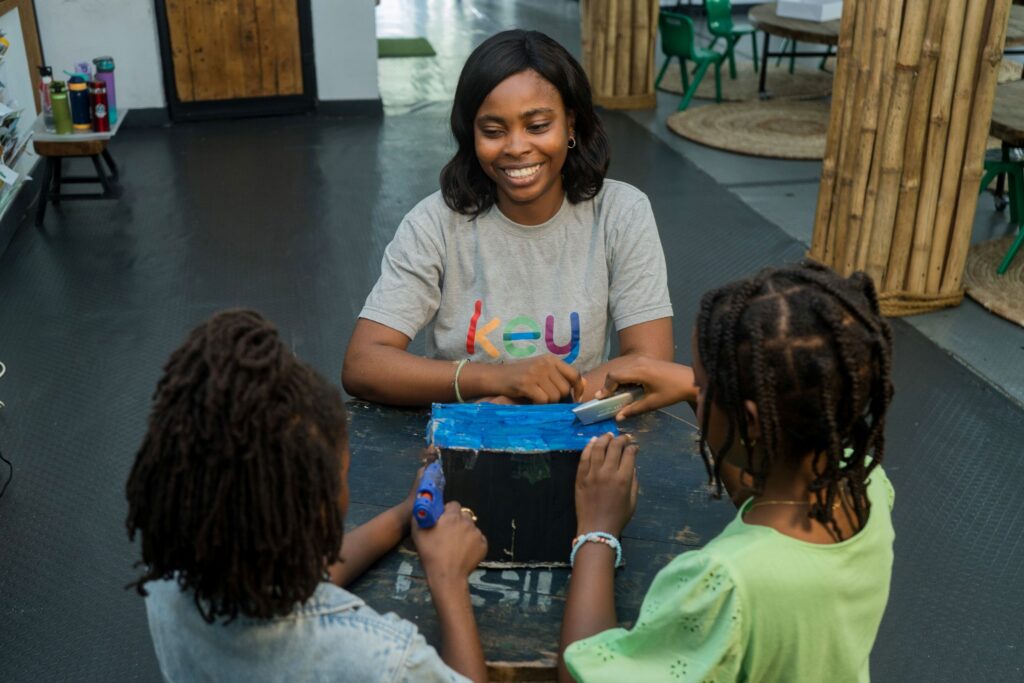
Who is Damilola Okonkwo?
I’m an education leader, entrepreneur, changemaker, and advocate for purposeful learning. My journey began in finance, with over 20 years of experience across the UK and Nigeria, including roles at JP Morgan, Credit Suisse in London, and as Head of Asset Management Strategy at FBN Capital in Lagos. But in 2016, everything shifted when I co-founded The Alternative Learning Centre (ALC), and in 2019, I launched KEY Academy – Africa’s first 21st-century project-based learning school.
KEY stands for “Keep Educating Yourself”, and that’s the heart of what I believe: that learning should be continuous, relevant, and rooted in curiosity. I’m also proud to serve as the HundrED Community Lead for West Africa, where I champion innovative education models on global platforms. My mission is to empower children with critical thinking, creativity, collaboration, and the confidence to solve real-world problems with purpose.
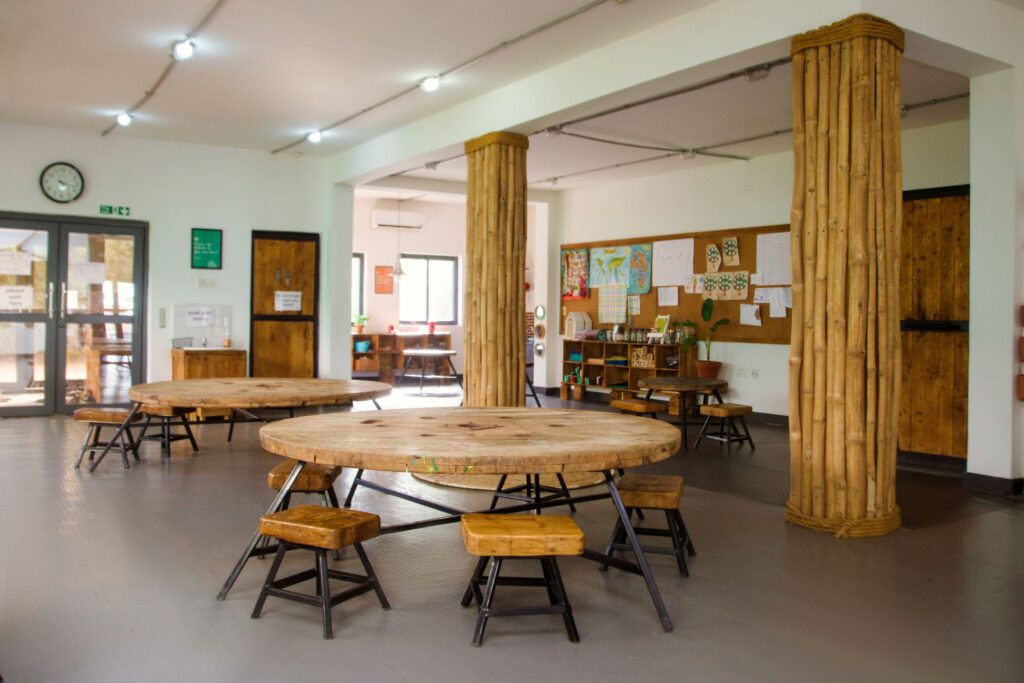
Can you share the key moment(s) that gave you the conviction to leave a decade-long finance career in London and Lagos to launch KEY academy?
The catalyst for leaving my decade-long career in finance came after I moved back to Lagos in 2013. I was searching for a school that offered the kind of transformative, future-focused education I wanted for my children. But what I found were conventional models that didn’t reflect the kind of learning I knew was possible.
That personal quest led me on a long, winding journey. I started exploring innovative learning models from around the world, from Reggio Emilia in Italy to project-based schools in Finland, and even dug into pre-colonial education systems in Nigeria and across Africa. I was fascinated by how children learn when they’re curious, confident, and connected to their culture.
Having grown up in social housing in the UK, I understand what it means to dream big and beat the odds. But in Nigeria, I saw how socio-economic barriers kept millions of children from having that chance. That’s what gave me clarity – I didn’t want to build another school that could only be accessed by the wealthy. I wanted to democratise access to world-class education for all children in Nigeria.
After years of research, planning, and plenty of second-guessing (especially since I had no formal background in education), I launched KEY academy in 2019. From the beginning, it’s been about reimagining what learning can look like in Nigeria – not just for my children, but for children across the length and breadth of our vast country.
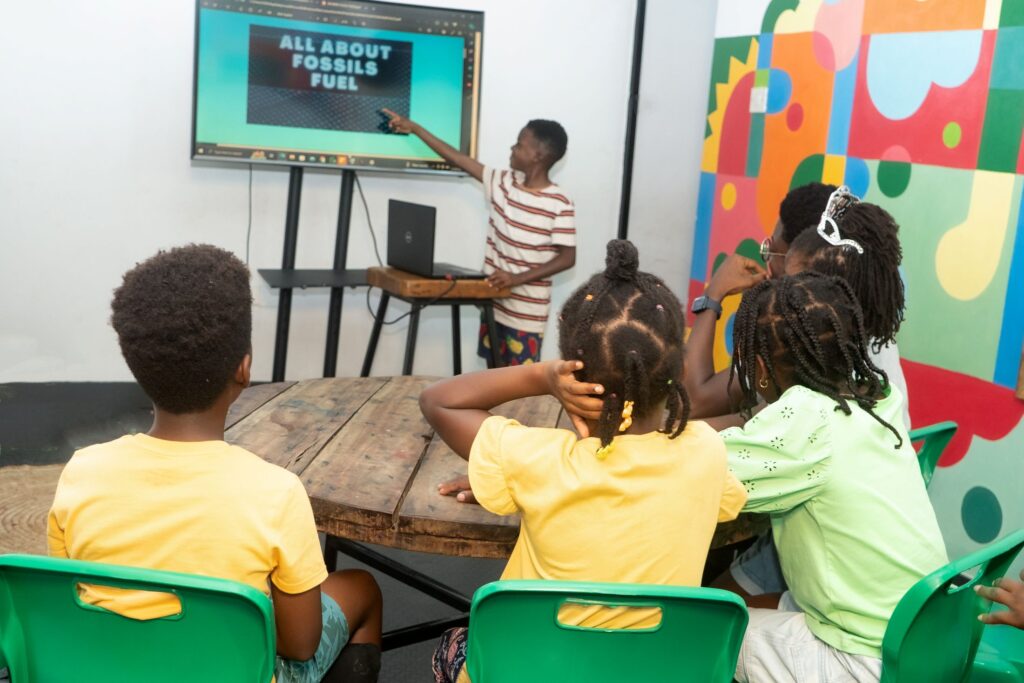
How do you adapt project-based and play-based learning methods to suit the Nigerian context while ensuring students meet curriculum standards like numeracy and literacy?
Adapting project-based and play-based learning to the Nigerian context is something we’ve been intentional about from the very beginning. I believe students learn best when they’re actively engaged, and that learning should feel meaningful, not just in theory, but in real life.
At KEY academy, we draw from the UK National Curriculum but tailor it deliberately to reflect the Nigerian context, realities, and culture. We don’t just lift and apply – we adapt, contextualise, and innovate to ensure that the content resonates with our students’ lived experiences. Our approach is rooted in the belief that global standards are most effective when they are culturally relevant and locally grounded. What we do is weave curriculum standards like numeracy and literacy into real-world projects and purposeful play. For example, rather than teaching maths as abstract numbers on a board, we embed it into activities like budgeting for a class market, measuring ingredients during a cooking project, or calculating distances while mapping their neighbourhood. In literacy, we have students write scripts for presentations, create captions for exhibitions, or document their reflections during learning journeys – so reading and writing become tools for communication, not just skills for testing.
As I mentioned, we are also very mindful of our local realities. So whether it’s designing projects around environmental issues like flooding in Lagos or drawing from cultural heritage in our study of Isale Eko, we make sure learning is rooted in the world our students know. That way, they’re not just learning – they’re connecting, applying, and growing as curious, thoughtful citizens of Nigeria and beyond.
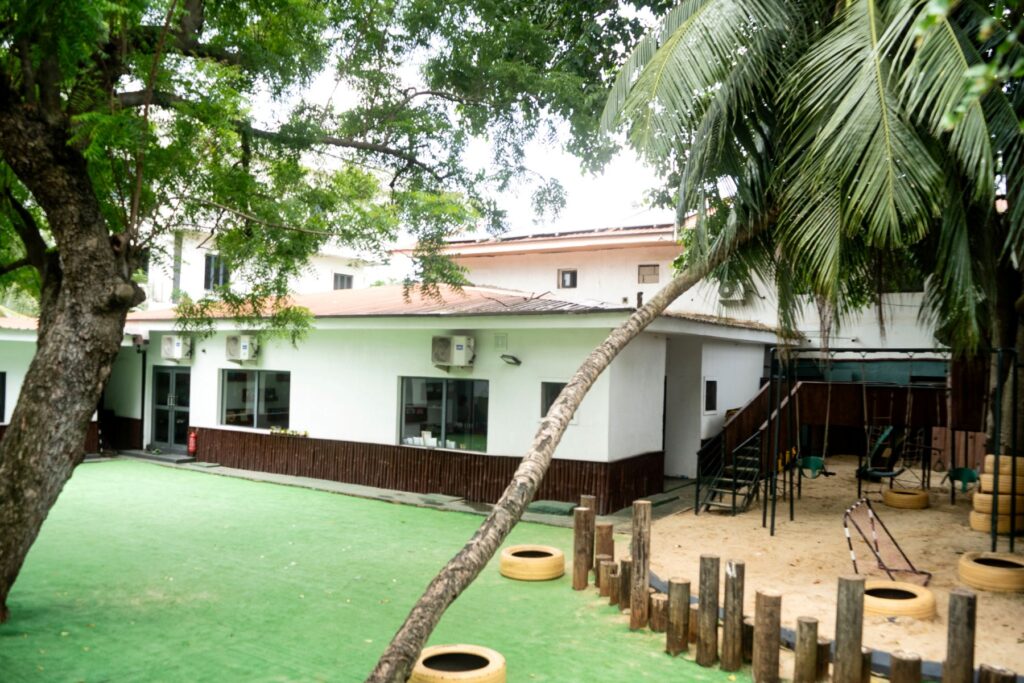
How did KEY academy navigate the COVID-19 pandemic, especially with initiatives like “KEY @ Home” and what lasting innovations emerged from that period?
Navigating the COVID-19 pandemic was one of the most defining moments for us at KEY academy. Like everyone else, we had to adapt quickly, but for us, it wasn’t just about moving classes online. It was about staying true to our values of connection, creativity, and meaningful learning, even in isolation.
We launched KEY @ Home, a home-based version of our project-based learning model. It wasn’t just Zoom calls and worksheets; it was curated weekly projects, personalised learning guides, and hands-on activities that children could do with the resources they had at home. The program included practical home-based projects, guidance notes, resource links for parents, and daily 10-minute video calls for children to maintain contact with their educators. One of the biggest innovations that emerged was our flexible learning framework, the idea that learning doesn’t have to be tied to a classroom to be effective. We saw parents become active collaborators, and students take more ownership of their learning. That shift in mindset has stayed with us. Today, many of those tools – like digital portfolios, voice reflections, and flexible assessment methods – are now part of our everyday practice. The pandemic challenged us in ways we could never have expected, but it also made us better, and helped give us the self confidence that we can codify what we have built into a digital platform to help train educators across Nigeria on how to deliver 21st-century education.
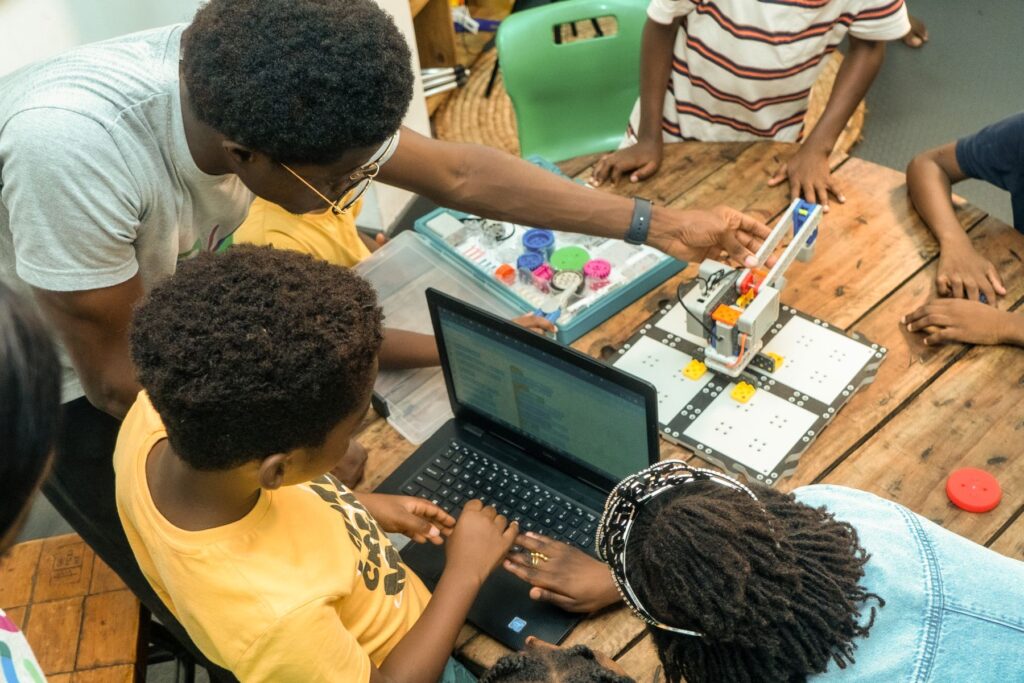
What was the strategic vision behind launching ChessMasters, and how does it complement KEY academy’s broader skill-development goals?
The truth is, I didn’t grow up playing chess. It wasn’t something that was encouraged in the part of London I grew up in, and to be honest, I didn’t really understand it. It felt slow, rigid, and far removed from anything I could connect with as a child.
But that perspective changed when I saw what chess was doing for the children at KEY academy – including my own. It started with one student who was absolutely obsessed with the game. We noticed how his thinking was sharper, his focus stronger, and his ability to persevere through challenges much deeper. We didn’t dismiss it as just a hobby, we leaned in and integrated chess education into our curriculum. My son then got hooked on playing chess and that’s what inspired the launch of ChessMasters. It’s a bold, collaborative movement to bring the transformative power of chess to children across Lagos, and eventually across Nigeria and the continent. It’s not just about winning games. It’s about building strategic thinkers, patient problem-solvers, and young leaders who can see the big picture, both on the board and in life.
Chess is uniquely positioned to cultivate 21st-century skills in young people, and yet, it remains underutilised in most Nigerian schools. We created ChessMasters as a high-impact, high-visibility tournament to change that, not only for our students, but for students across the country. By partnering with Chess in Slums Africa and Eko Hotels and Suites, we brought together over 100 schools and 500 students from diverse backgrounds, creating a shared space for intellectual competition and connection. It was hands-on learning in action, with a chessboard as the classroom.
Our work at KEY academy has always been bigger than a single school. We’re building a nationwide movement for meaningful, purpose-driven education. This includes a new 15,000sqm secondary school and innovation campus which will launch in 2027,and will allow us to scale our impact through our nationwide teacher training platform, digital content, books, events, and ultimately, policy reform. By embedding innovation in both what students learn and how teachers teach, we intend to transform education in Nigeria from the ground up, and initiatives like ChessMasters are how we bring that vision to life.
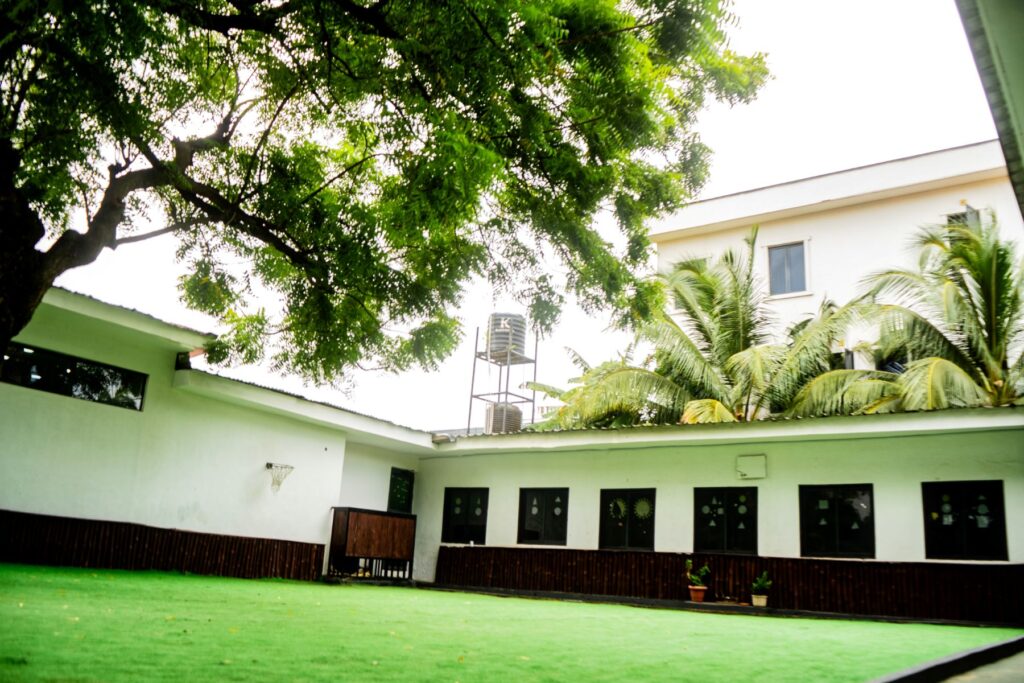
What does being shortlisted as a Top 10 finalist for the 2025 World’s Best School Prize in Innovation mean for you and the future direction of the school?
Being shortlisted as a Top 10 finalist for the 2025 World’s Best School Prize in Innovation means more than I can fully express. It’s incredibly affirming, not just for me personally, but for our entire team, our children, our families, and for everyone who has believed in this vision from the very beginning.
When we launched KEY academy in 2019, it wasn’t with global recognition in mind. It was simply a response to a deep need – a desire to create the kind of education I wished existed for my own children. To be recognised on a global stage, as a school in Nigeria doing things differently and doing them well, is a powerful reminder that innovation doesn’t have to come from developed countries. It can and should come from this part of the world too.
For me, this recognition is not the destination. It’s a launchpad; to dream bigger, reach further, and continue showing what’s possible when we put children, curiosity, and courage at the heart of learning.
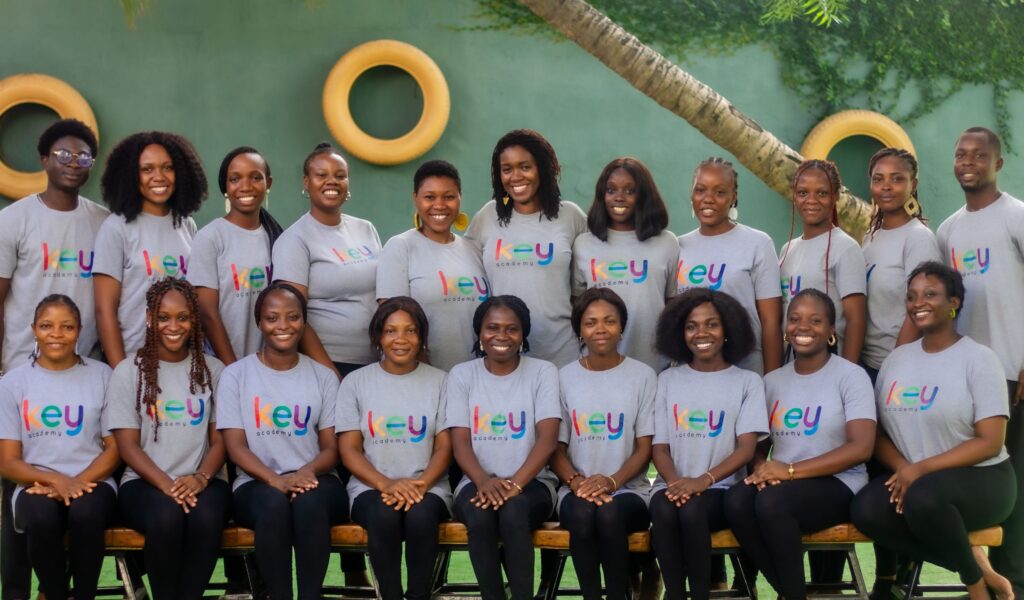
Can you outline KEY academy’s three-phase roadmap – model school, edtech and teacher training, and policy reform – and highlight key milestones ahead?
From the outset, KEY academy was designed as a working model of what education in Nigeria could look like if we dared to do things differently.
We have a three-phase roadmap that guides everything we do:
Phase One: Build a model school. This is what we’ve been doing since 2019. Our school is a living, breathing example of project-based, 21st-century learning in action – where students don’t just memorise facts, they learn to think, create, and connect. This phase has been about testing our approach, refining it, and proving that high-quality, child-centred education is possible in Nigeria, right now.
Phase Two: Scale through nationwide teacher training and our broader initiatives. We’re now building a 15,000sqm secondary school and innovation campus that will allow us to expand our student offering while launching a nationwide digital teacher training platform. The goal here is to move from direct impact to exponential impact – empowering millions of educators and children across Nigeria with training, immersive events, digital content, books, and community-based learning experiences.
Phase Three: Influence policy and systems. The final piece is advocacy and reform. We know that meaningful change must go beyond classrooms – it must influence policy, standards, and systems. So as we grow, we’re committed to working alongside public sector partners to influence curriculum, teacher development frameworks, and national education goals in a way that truly reflects the needs and realities of today’s learners.
For us, success isn’t just about growing one school. It’s about helping to spark a movement that shifts the purpose of education in Nigeria, from cramming for exams to preparing students to lead, build, and thrive in a rapidly changing world.
How do you select and train your co-learners (teachers), and what ongoing support do they receive to maintain innovative teaching practices?
We’re very intentional about who we bring into our learning space. We don’t just look for educators – we look for co-learners who are curious, open-minded, and committed to 21st-century learning. We value people who aren’t rigid in conventional systems but are eager to grow, adapt, and think differently about education.
Once they join us, training is continuous. We offer regular professional development sessions on everything from classroom innovation to emotional intelligence and communication with parents. They also get coaching, peer learning opportunities, and access to resources that support our project-based model. Our goal is to create an environment where co-learners are constantly evolving – just like our students.
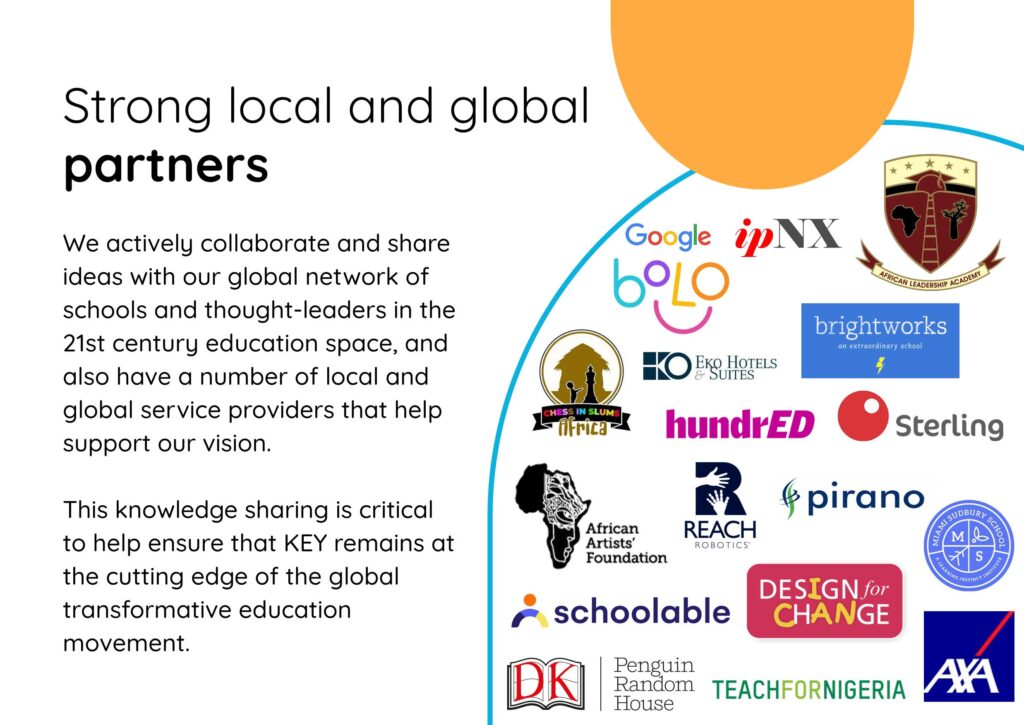
What is your long-term vision for KEY academy’s role in transforming education across Nigeria, especially with the planned secondary campus, innovation hub, and national policy-level engagement?
My long-term vision for KEY academy has never been about building the biggest school. It’s always been about building the right kind of impact. Our secondary school and innovation campus are critical next steps in that journey. They’re not just about expanding student access, they’re about creating a national platform for change. This new space will allow us to train thousands of teachers annually, create and distribute high-quality digital content, host education innovation events, publish books and resources, and pilot ideas that can inform national policy.
Because the truth is, no matter how strong our school is, it will never be enough on its own. The gaps in Nigeria’s education system are systemic. So if we want long-term transformation, we have to build a model that goes beyond our own walls.
I see KEY academy becoming a catalyst, a space where we show what’s possible, equip others to do the same, and work hand-in-hand with both private and public sector leaders to ensure children across Nigeria have access to learning that’s relevant, rigorous, and rooted in possibility. Ultimately, we want to help shift the purpose of education in this country, from surviving the system to shaping the future.
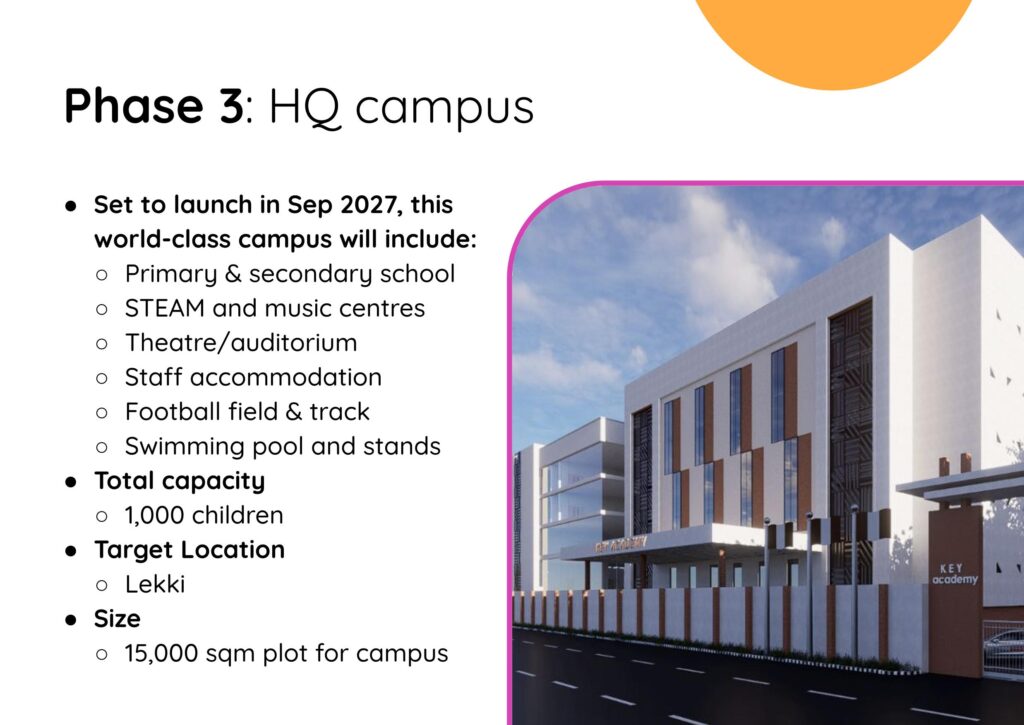 What would you say stands KEY academy out from other schools?
What would you say stands KEY academy out from other schools?
We’re not trying to tweak an old system, we’re building something entirely different. We don’t teach to test. We teach to equip students for the real-world. That means no rote memorisation, no exam cramming, no one-size-fits-all learning. Instead, we use project-based learning to help children explore big ideas, solve real-world problems, and develop the kind of skills that actually matter – 21st century skills – such as creativity, collaboration, empathy, critical thinking, and resilience. Our students don’t just sit and listen. They investigate, experiment, debate, and present. They ask big questions and pursue answers that feel meaningful. A six-year-old might spend a term building a working vending machine. A nine-year-old might pitch a startup idea to real entrepreneurs. Every project is designed to be rigorous, integrated, and deeply connected to the world around them.
We also take teacher development incredibly seriously. From in-person training to books, residential courses and international fellowships, our educators are co-learners, constantly reflecting, training, and evolving, because we know that truly transformative learning starts with the adults in the room.
KEY academy is different because we’re not preparing children for the world as it used to be. We’re equipping them with 21st-century skills so that they can be bold changemakers in the world as it will be in the future.
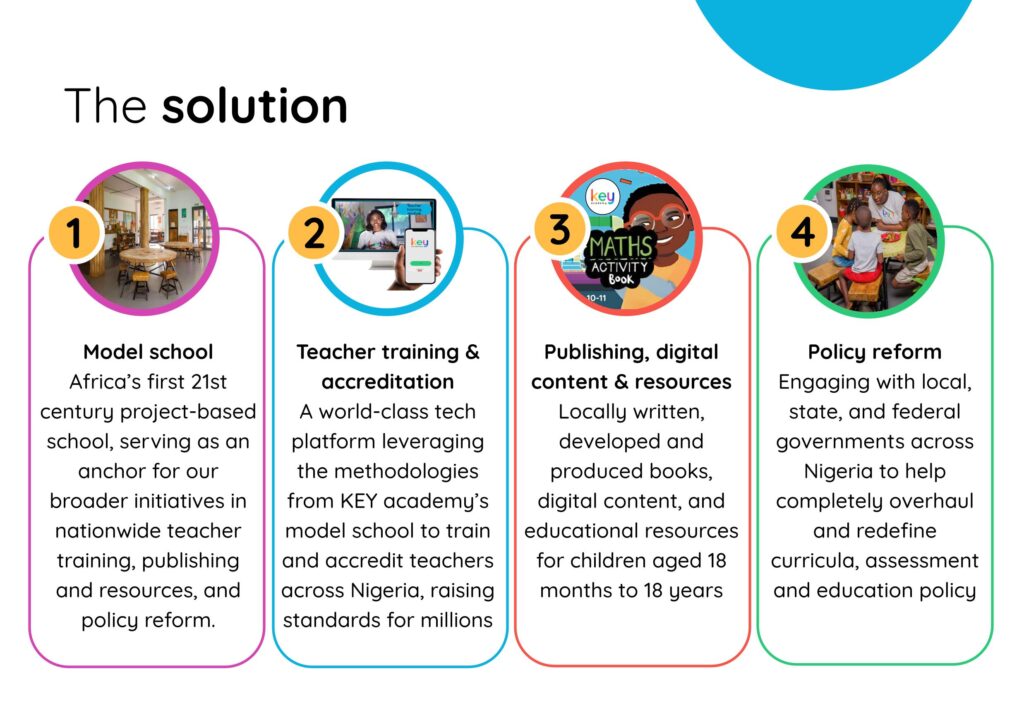 Aside from awards which are obvious symbols of recognition, what else will signify success, when you look back in a few years time?
Aside from awards which are obvious symbols of recognition, what else will signify success, when you look back in a few years time?
Awards are wonderful. They shine a light on the work, open doors, and offer validation, especially in contexts where innovation in education often goes unnoticed or unsupported. But when I think about what will truly signify success in the years ahead, it goes far beyond trophies or titles.
Success will be walking into a room full of 10-year-olds who are not just reciting facts, but articulating complex ideas – asking big questions, challenging assumptions, and offering thoughtful solutions to real-world problems. It’s knowing that they’re confident, not because they were taught to be loud, but because they were taught to think.
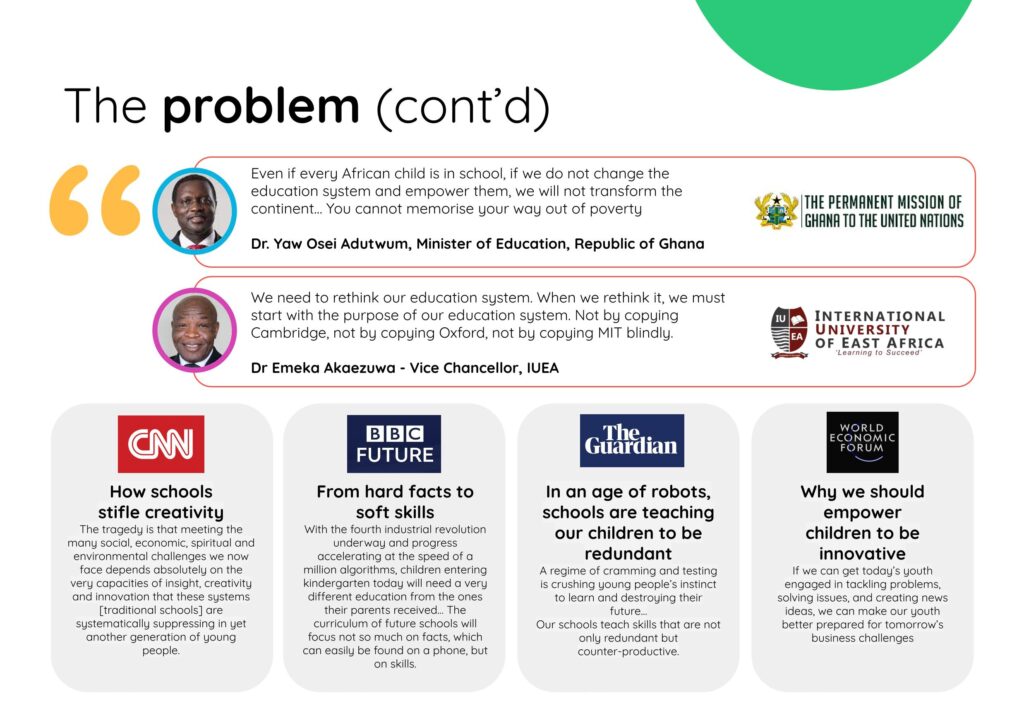 It’s seeing our co-learners (our term for teachers), many of whom came into the profession through conventional, rigid systems, fully transformed in how they teach and learn. It’s watching them take the lead, run training sessions, coach others, and become multipliers of this approach in their own communities.
It’s seeing our co-learners (our term for teachers), many of whom came into the profession through conventional, rigid systems, fully transformed in how they teach and learn. It’s watching them take the lead, run training sessions, coach others, and become multipliers of this approach in their own communities.
Success will be walking into a school we didn’t build – in a rural part of Nigeria – and seeing practices that echo what we model at KEY academy. Not because we franchised anything, but because the ripple effects of our teacher training, digital content, or books reached them.
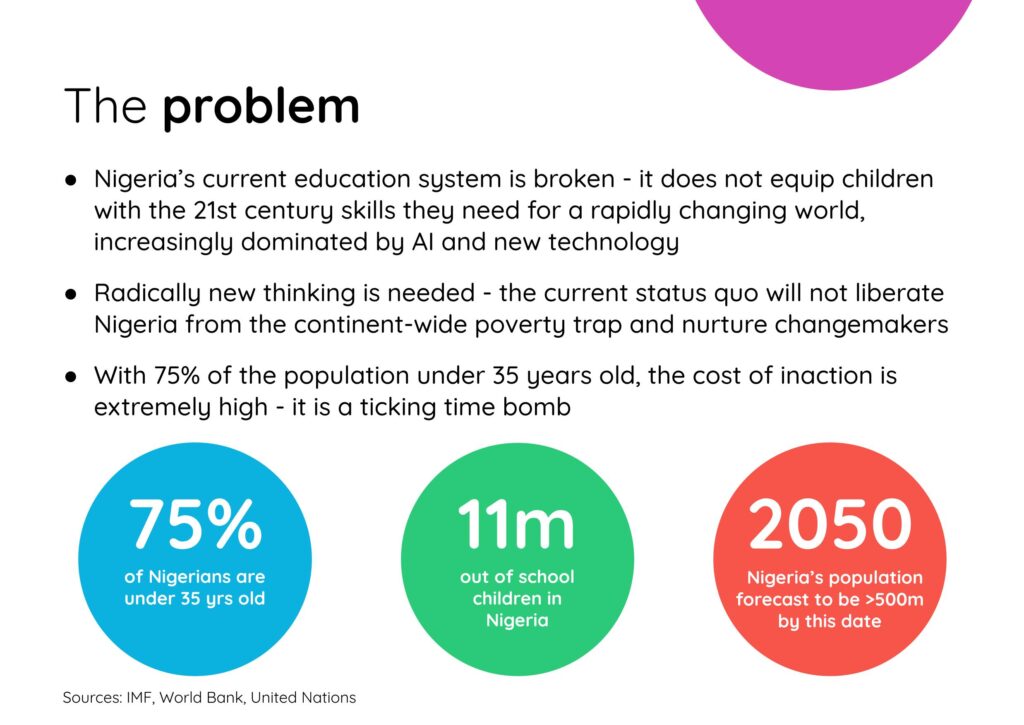 It’s when project-based learning isn’t seen as a luxury, but as a basic standard. When education reform isn’t just a conversation happening in high-level meetings, but something teachers, parents, and policymakers across Nigeria are driving together. When we start designing learning environments that reflect the world we live in, and the one we want to create.
It’s when project-based learning isn’t seen as a luxury, but as a basic standard. When education reform isn’t just a conversation happening in high-level meetings, but something teachers, parents, and policymakers across Nigeria are driving together. When we start designing learning environments that reflect the world we live in, and the one we want to create.
For me, that’s the goal. That’s the measure of success: when this approach becomes the norm, not the exception. When we’ve played a real role in shifting how children across Nigeria are taught – not just to pass, but to lead.



































































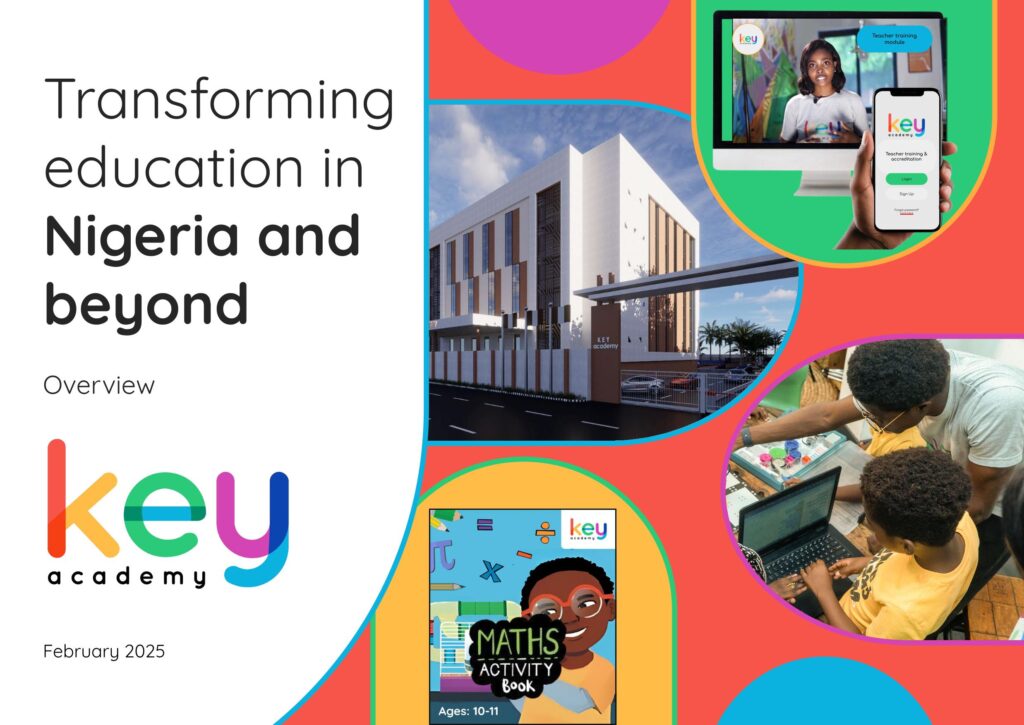 _____________________________
_____________________________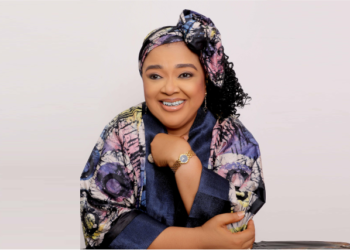
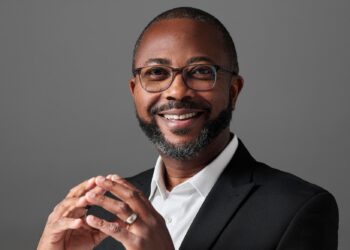
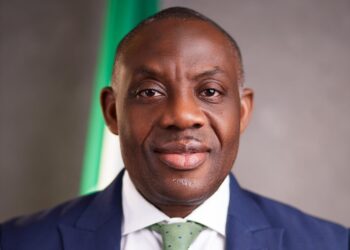
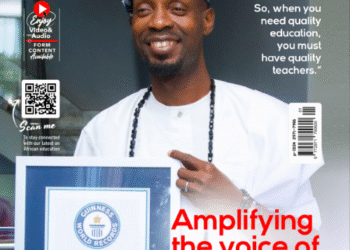

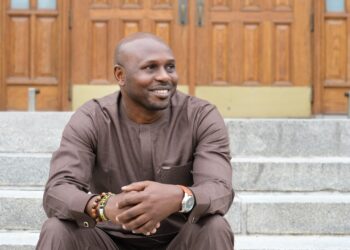










 EduTimes Africa, a product of Education Times Africa, is a magazine publication that aims to lend its support to close the yawning gap in Africa's educational development.
EduTimes Africa, a product of Education Times Africa, is a magazine publication that aims to lend its support to close the yawning gap in Africa's educational development.